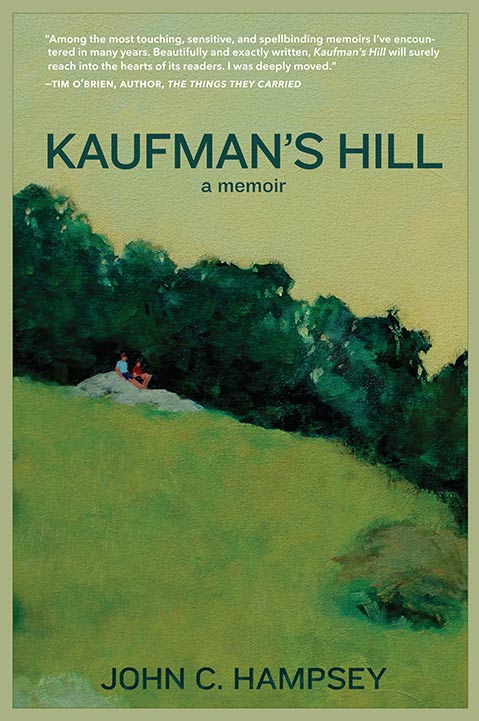Braving Boyhood on Kaufman’s Hill
Pittsburgh-Raised Cal Poly Professor John C. Hampsey’s Memoir Examines an Overlooked Era
In the beginning of Kaufman’s Hill, there’s a strong emphasis on seemingly insignificant events, such as the mutilation of a dead rat, while matters of greater import, such as witnessing President John F. Kennedy’s motorcade roll by, are greeted with little more than a passing glance. It’s like remembering your own naive childhood as you look back decades later, and that’s exactly the point of John C. Hampsey’s melancholy memoir about growing up in Pittsburgh’s expanding suburbia of the 1960s. In the off-and-on works for nearly 20 years, the Cal Poly literature professor’s 200 pages of meticulously reproduced memories from when he was 7 to 14 years old is told from the innocent perspective of his much younger self, providing a culturally rich, socially inquisitive, and ultimately honest portrait of a rarely explored era.

“I wanted to capture the early- to mid-’60s, a world where freeways and malls are just coming on and suburbs are swallowing up our woods,” explained Hampsey, who touches on Catholic school, depressed parents, race relations, and much more while happily recalling long afternoons of playing away from home for hours, even at just eight years old. “No one asks you where you’ve been, and if you’ve been beaten up or bullied, you don’t tell anybody,” he said of those days. “It’s a world of exhilarating freedom and absolute danger that we will never have again. I call it a twilight time, a threshold time. I wanted to capture my voice and view on that world.”
Having never written anything other than fiction, the 60-year-old Hampsey, who also taught at MIT and Boston University before starting in San Luis Obispo in 1989, wrote what became the first chapter in 1995 based on the vivid, rat-destroying memory he had from age 7. His writing group thought it was the best thing he’d ever done, but he stopped work soon after to work on what became his first book, Paranoia and Contentment: A Personal Essay on Western Thought, which was praised by Lawrence Ferlinghetti and Tim O’Brien.
When his mother died in 2004, he refocused on a memoir that was both literary yet told in the young voice of the narrator. Hampsey tapped “seared-in-my-brain images” from his youth, and “immediately, the dialogue just flowed,” he explained. “I know it sounds mystical, but it was always just right there in front of me.” Still, it took a while, as he would write two to three pages, and then revise them 10 to 20 times until “every page had something that sparkled.”
Even though there is no steep dramatic arc or major plot twists, the result is quite compelling, leaving a moody sense of a lost time, when schoolyard bullying, questionable priests, and daddy’s highballs were daily affairs. He admits it skews toward the dark side but believes most good literature does, and explained, “The uplift is in getting at the truth of that time and the culture of those people in that world.”
The book is receiving quick praise — O’Brien’s again as well as the late Howard Zinn’s — and the publisher, Bancroft Press, is taking Hampsey on a four-month signing tour, somewhat unheard of for a memoir these days. Best of all, Hampsey is getting letters from readers who say, “You’ve painted this world the way I remember it.” Not bad for a boy from the Pittsburgh ’burbs.
4•1•1
John C. Hampsey will sign copies of Kaufman’s Hill: A Memoir on Thursday, March 12, at 7 p.m. at Chaucer’s Books. See johnchampsey.com.



